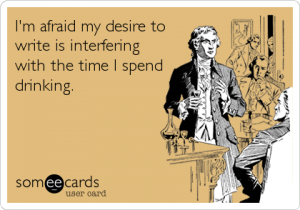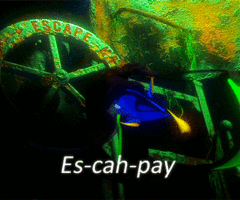Humans are a storytelling species. Stories are how we make sense of the world. Stories turn raw data into intelligence. We cannot make decisions without telling ourselves what stories we would like to make true.
My federal counterparts hire contractors to do the information collection and repackaging work that I do for the state. On occasion we share information on points of mutual interest, and I’ve seen some of these contractor-generated reports. And I gotta say, I’m much better at it than the feds are.
Why? Because I never forget that I’m telling a story [0].
I have a template that I follow which uses your basic inverted pyramid structure. We begin with generalities: what is the issue and why do we care about it? I’ll introduce the stakeholders and run through the issue history from a couple of different angles, and the deeper I get into the document, my descriptions get more specific. I wrap up with conclusions and recommendations. Pretty basic, right? By the end you know the story– what is the problem, how did it get there, who is to blame, and where do we go from here. You probably learned this in English class.
On the federal level, though, it’s all about getting paid, and they’re not ashamed of it. The first page of the document usually describes the contract, and every section thereafter is in contract order [1]. The document is specifically designed so that you can lay it on the table side-by-side with the contract and check off that every contractual obligation has been satisfied, in order. Good job, well done, you’ll have a check in 30 days.
The contractors work hard. They use the same resources I do, mostly, and collect the same data. They are without a doubt dedicated and passionate about their work. But the structure of the contract precludes their ability to tell the story, and they write a report as a series of unconnected collections of data. They never even see the story, which means they can’t identify and fill plot holes, they never ask, “What if?” and they end up missing out on critical insights and promising lines of inquiry.
I feel sorry for the federal project managers who have to read the reports and try to make decisions based on them. All the information is there, but the serious skull work of making sense of it all is yet to be done. One of the reasons I am careful to tell stories is because I know my bosses are busy people. They don’t have the time or the attention span to do a lot of synthesis. I have to lay it out in plain language, and the best way I know to do that is to tell a story.
[0] It’s a factual story, and every point in it has to be backed up in reality somewhere, which often means a six-page memo has 200 pages of attachments.
[1] Which would be fine if whoever wrote the contract knew how to structure a story. But they don’t.
 The one thing that all writers wish they had more of is time. Whether finding time to write, or re-write, or edit… it always seems that deadlines are looming and there’s not enough minutes or hours in the day.
The one thing that all writers wish they had more of is time. Whether finding time to write, or re-write, or edit… it always seems that deadlines are looming and there’s not enough minutes or hours in the day.

